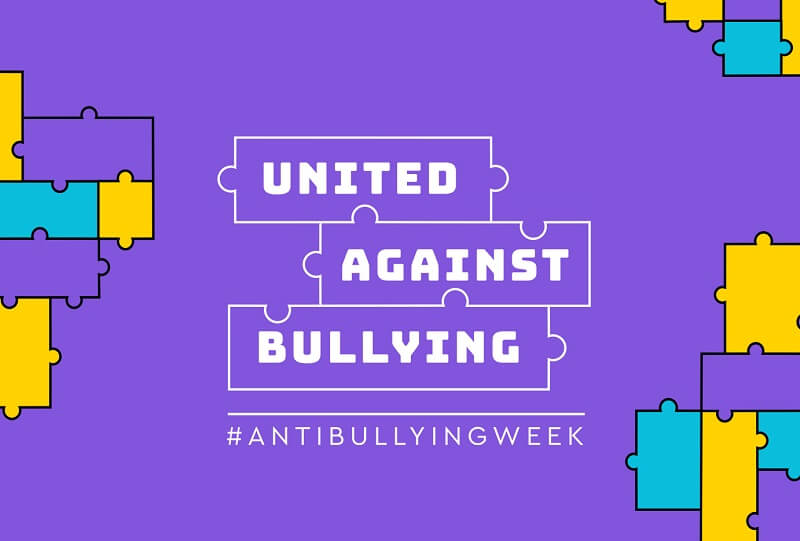
Let’s stamp out bullying!
Bullying, unfortunately, is something that many of us have faced or are even still facing today. And bullying is something that many children and young people face on a daily basis.
With the pace of life moving so rapidly, and new trends coming and going, it also means that bullying has taken on a new shape and form. No longer does bullying stop and start within the school gates, but more than ever we see bullying continuing once the school day is over due to the popular rise of the internet and social media.
The internet has made it harder than ever for this generation to navigate through adolescence. There is never a moment where they truly get to switch off from technology, which opens the door for bullying to take place.
From comment sections, private messaging, public picture sharing, live video streaming and gaming forums there are so many outlets where children and young people can be exposed, leaving them more vulnerable to being bullied.
Anti Bullying Week aims to bring awareness to bullying, encouraging children, parents and teachers to take action against bullying throughout the year with this year’s theme celebrating differences and equality.
So how can we help to stamp out bullying? What are some of the small everyday things we can all do to prevent bullying from beginning?
Firstly, look for the bully. Yes, this may sound like a weird request. But ever heard of the saying ‘Go straight to the source’? Giving attention and time to understand why someone may be bullying somebody is a great start to addressing the root of the problem. It is very common to want to condemn the bully and isolate them due to their bullying but if we actually talk to them and understand the reasons why they may be lashing out, it could potentially remove the root of the issue.
Secondly, having an understanding of the apps and websites that your child uses daily is useful when being able to spot signs whether bullying may be taking place. By showing a genuine interest in what your child is interested in, they will become more willing to share just how these apps work and what they get up to on them. Some good leading questions would be “Do you talk to your school friends here?”, “How does the app/website/game work?” and “Do you know everyone you speak to?”. If you notice that sometimes your child could be withdrawn after coming off their phone or computer, or lock themselves away in their room when coming home from school it may be a sign that they are experiencing cyberbullying.
Listen. It’s so important for a young person to feel like they are being heard, and acknowledged during a time like this. If somebody feels as if they are being bullied it should be investigated thoroughly and they should feel supported throughout.
Bullying is not something that we will be able to drive out overnight. But by highlighting that bullying does exist and not being afraid to talk about it allows us to start taking action earlier.
To find out more about Anti Bullying Week, click here.


Recent Comments